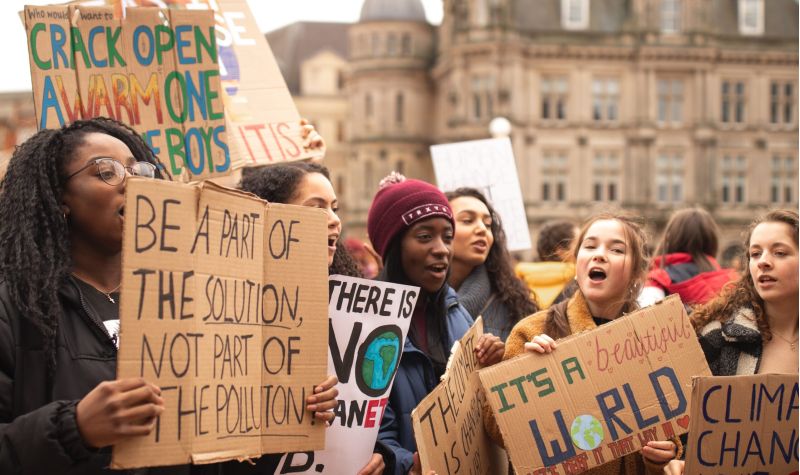
New generations and climate change: a special bound
In 1987, the Brutland Commission defines sustainable development as “development that meets the needs of the present without compromising the ability of future generations to meet their own”.
Right now, in 2021, those future generations have become today’s generations. We, are those generations.
But are we ready to become the leaders the world needs?
Gen Z and climate anxiety
Let’s put it this way: young generations have a “special bound” to climate change. Why? First and foremost because they are particularly affected by it. And not only in a tangible and physical way, but in a psychological one too. Climate anxiety is a thing, and the psychological effects of climate change seem to be particularly evident in young people.
Gen Z’s, generation of those born between 1995 and 2012, are more likely to feel the pressure of a climate challenge because of two main reasons:
- They are the ones who will have to deal with the outcomes of it
- Because of their age, they found themselves in a more critical spot of their psychological development
A new consumer is born
The way young generations buy, has also changed.
If millennials come from an era where teenagers would brag with friends about how many new pieces they bought daily at H&M, today they have to be careful to say something like this out loud. In fact, Gen Z’s have generated a new consumer, more aware and demanding than ever before, looking for brands with core values and integrity. According to Forbes, 62% of Gen Z prefers to buy from sustainable brands and 54% are even willing to pay more for it. With every generation the demand for sustainability increases as it goes from baby Boomers (23%), Gen X (34%) to Millenials (50%).
The pandemic too has accelerated the process of awareness and customers now look for brands that take a stand for the environment. According to McKinsey 2/3 feel there is and urgency to address fashion’s impact on the planet and the people and more than 60% are planning on reducing their buying.
Second-hand platforms too exploded during the pandemic, recording +70% in sales vs 2019 with Gen Z’s leading the way. If you want to know more, we talked about second hand market here.
Summing up, consumers want brands to help them be more environmentally friendly. Apparently 88% of them. Although this might not be the whole story.
Dark side of the moon
According to BOF, the pandemic boosted the sales of several fast fashion brands, too. E-tailers like I Saw It First, Bohoo and Shein won the heart of the very same Gen Z. So if on one hand young generations have a reputation for responsible and ethical consumption, on the other one they are also feeding overconsumption. In other words, like everything in life, there are two sides. The generation is split in two, polarized between fast fashion lovers and climate change advocates.
Working with values
It’s not only about how we consume. What we do on a daily basis clearly weights heavily, too. The social and environmental committment of a company can make it more or less desirable. We want to work with a purpose, we want to proud of how our employer operates and we feel the need to be part of something bigger than a monthly paycheck.
Here we talked about how young generations would even consider taking less money to work at a company whose missions and values align with their own, along with evaluating a company’s social and environmental commitment when deciding where to work.
So are new generations ready to stand up and fight climate change? Not everyone is on board yet, but we don’t wanna miss the boat for sure.